Key Takeaways
- The best credit repair services near me help remove errors and boost scores by 50–150+ points in 3–6 months.
- Legitimate credit repair companies charge $79–$129 monthly and follow CROA rules.
- DIY credit repair is free but experts save time and achieve better results for complex cases.
- Credit Saint ranks as the top credit repair company in 2025 with a 90-day money-back guarantee.
Your credit score impacts almost every financial decision in your life. From mortgage rates to apartment applications, insurance premiums to job opportunities – a poor score can cost you thousands of dollars and countless opportunities. If you’re struggling with credit issues, you’re not alone. According to Experian, nearly one-third of Americans have subprime credit scores below 670.
Finding the right credit repair service near you can make all the difference in your financial journey. While the credit repair industry has its share of scams and overpromises, legitimate services can help dispute inaccuracies, navigate bureau bureaucracy, and provide the guidance needed to rebuild your credit profile. This comprehensive guide examines the most reputable credit repair companies operating in 2025, breaking down their service offerings, pricing structures, and proven results.
Whether you’re recovering from identity theft, dealing with the aftermath of financial hardship, or simply trying to clean up reporting errors, this article will help you find a trustworthy credit repair partner in your area. We’ve researched dozens of providers to bring you only licensed, compliant companies with proven track records of success and transparent business practices.
How Credit Repair Services Work (Simple 4-Step Process)
Before diving into specific companies, it’s important to understand exactly how legitimate credit repair works. The process follows a structured approach designed to identify and dispute inaccuracies in your credit reports from the three major bureaus: Equifax, Experian, and TransUnion. While each company may have slight variations in their methodology, the core process typically includes these four essential steps:
1. Free Credit Analysis and Report Review
The process begins with a comprehensive review of your credit reports from all three major bureaus. A credit consultant will examine your reports line by line, looking for potential errors, inaccuracies, and negative items that could be challenged. These may include late payments reported incorrectly, accounts that don’t belong to you, outdated negative information that should have aged off, or debts that show incorrect balances or statuses. This initial analysis forms the foundation of your personalized credit repair strategy.
During this phase, many reputable companies will also provide you with a free consultation to explain their findings and outline potential courses of action. This is your opportunity to ask questions about the process, discuss specific credit goals, and understand what realistic outcomes you might expect. The consultant should clearly explain which items they believe can potentially be removed and which negative marks are likely to remain on your report.
💡 Why This Matters: According to a 2021 Consumer Reports study, 34% of Americans found at least one error on their credit reports. These errors can significantly impact your credit score, with serious mistakes potentially lowering scores by 50 points or more. The initial credit analysis identifies these problems so they can be systematically addressed.
2. Customized Dispute Strategy Development
Based on the findings from your credit analysis, the credit repair company will develop a tailored strategy for disputing inaccurate items. This strategy typically prioritizes disputes based on which items are most damaging to your score and which have the highest likelihood of being removed. The company will prepare specific dispute letters for each credit bureau, citing relevant consumer protection laws like the Fair Credit Reporting Act (FCRA), Fair Debt Collection Practices Act (FDCPA), and Fair and Accurate Credit Transactions Act (FACTA).
Different negative items require different dispute approaches. For instance, challenging a collection account may involve requesting debt validation from the collector, while disputing an incorrect late payment might require supporting documentation showing your payment history. Good credit repair companies have templates and strategies refined through thousands of previous cases, maximizing the chances of successful removal.
3. Direct Communication with Credit Bureaus
Once your dispute strategy is developed, the credit repair company begins the process of formally challenging inaccurate items with the credit bureaus. This involves sending professionally crafted dispute letters, supporting documentation, and following up persistently until each issue is resolved. The credit bureaus are legally required to investigate disputes within 30 days (in most cases) and must remove information they cannot verify as accurate.
Experienced credit repair specialists know exactly how to frame disputes to maximize the chances of success. They understand bureau procedures and know which supporting evidence is most effective for different types of disputes. They also maintain detailed records of all communications, which can be crucial if further escalation is needed. While consumers can certainly dispute items themselves, professionals often achieve better results through their expertise and systematic approach.
4. Ongoing Monitoring and Support
Credit repair isn’t a one-time fix but an ongoing process that typically spans 3-6 months for most clients. Throughout this period, the credit repair company will continuously monitor your credit reports, track the status of disputes, and adjust strategies as needed. As disputed items are removed, your consultant may recommend additional actions to further improve your score, such as addressing newly appearing negative items or providing guidance on positive credit building.
Many services also include credit monitoring tools that alert you to changes in your reports and scores. This ongoing monitoring ensures that removed items don’t reappear (which sometimes happens) and that your progress is maintained. Your consultant should provide regular updates about the status of your disputes and be available to answer questions throughout the process. The best companies offer educational resources to help you maintain good credit long after their services end.
Top 7 Credit Repair Services Providers (Compared & Reviewed)
After evaluating dozens of credit repair companies based on their service offerings, customer reviews, legal compliance, and effectiveness, we’ve identified the seven best options available nationwide in 2025. Each of these companies is fully compliant with the Credit Repair Organizations Act (CROA), has a strong track record of success, and maintains transparent business practices. While all provide core dispute services, each has unique strengths that might make them more suitable for your specific situation.
| Company | Best For | Monthly Fee | Setup Fee | BBB Rating | States Served |
|---|---|---|---|---|---|
| Credit Saint | Best Overall | $79.99-$119.99 | $99-$195 | A+ | All except SC |
| Lexington Law | Legal Expertise | $89.95-$129.95 | $89.95 | C | All except OR |
| Sky Blue Credit | Affordability | $79 | $79 | A+ | All 50 States |
| The Credit People | Money-Back Guarantee | $99 ($419 flat rate option) | $19 | B | All 50 States |
| CreditRepair.com | Technology Platform | $49.95-$139.95 | $14.99 | B | All 50 States |
| Ovation Credit | Customer Service | $79-$109 | $89 | A+ | All 50 States |
| Credit Glory | Fast Results | $99 | $99 | A | All 50 States |
1. Credit Saint – Best Overall Service

“What is Credit Saint?” from www.bestreviewguide.com and used with no modifications.
Credit Saint consistently earns our top recommendation for credit repair services due to their exceptional success rate, transparent pricing, and strong 90-day money-back guarantee. Founded in 2007, they’ve established a reputation for aggressive dispute tactics and excellent customer service. Their three-tiered service plans (Credit Polish, Credit Remodel, and Clean Slate) allow clients to choose a package based on their specific needs and budget constraints.
What sets Credit Saint apart is their clear communication about the process and what clients can realistically expect. They assign a dedicated advisory team to each customer, providing personalized attention rather than routing you through call centers. Their online portal allows clients to track progress in real-time, viewing exactly which items have been disputed and their current status. Unlike many competitors, Credit Saint is transparent about which negative items they challenge in each service tier.
“After working with Credit Saint for just 60 days, my score jumped from 598 to 687. They removed four collections and two late payments that weren’t mine. Their team explained everything clearly from day one, and I always knew exactly what was happening with my case.” — Marcus T., TX
Credit Saint offers unlimited disputes with the credit bureaus for their higher-tier plans, which is particularly valuable for clients with numerous inaccuracies across their reports. They’re also one of the few companies that will help with more challenging disputes like bankruptcies and repossessions in their premium package. Their 90-day money-back guarantee demonstrates their confidence in delivering results and provides peace of mind to new clients concerned about investing in credit repair.
2. Lexington Law – Best Legal Expertise
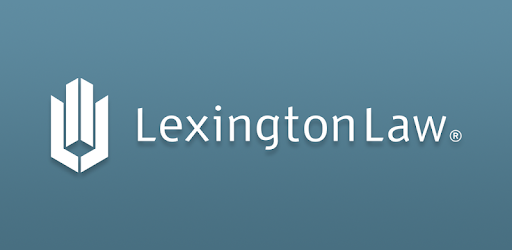
“Lexington Law – Credit Repair – Apps on …” from play.google.com and used with no modifications.
Lexington Law brings unmatched legal expertise to credit repair with their team of attorneys and paralegals specializing in consumer credit law. As one of the oldest and largest credit repair organizations, having served over 500,000 clients since 1991, they’ve developed sophisticated systems for handling complex credit cases. Their attorney-backed approach is particularly valuable when dealing with stubborn creditors or bureaus that resist standard dispute methods.
Their three service tiers (Concord Standard, Concord Premier, and Premier Plus) offer progressively more aggressive intervention strategies. The higher tiers include features like TransUnion FICO score updates, personal finance tools, identity protection alerts, and cease-and-desist letters to debt collectors. What truly distinguishes Lexington Law is their deep understanding of credit laws and regulations that they leverage to challenge even the most difficult negative items.
While their services come at a premium price point, clients with complex credit issues often find the investment worthwhile. They’re particularly effective for people facing legal credit challenges like judgments, liens, and wage garnishments. However, potential clients should be aware of the CFPB lawsuit filed against them in 2019, though they continue to operate nationwide and maintain a large client base.
3. Sky Blue Credit – Most Affordable Option
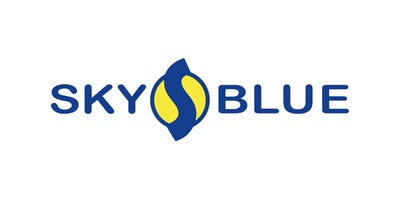
“Sky Blue Credit Repair Services Review 2025” from www.businessinsider.com and used with no modifications.
Sky Blue Credit stands out for its straightforward, affordable approach to credit repair. Unlike competitors with tiered pricing models, Sky Blue offers a single comprehensive package at $79 per month with a one-time setup fee of $79. This transparent pricing includes all available services with no upselling or hidden fees. For couples, they offer a substantial discount when both partners sign up, making them particularly attractive for households working on credit improvement together.
Their service includes dispute of 15 items (5 per bureau) every 35 days, which provides an aggressive pace of challenges while staying within bureau guidelines. They also offer additional services like debt validation, goodwill letter templates, and cease and desist letters to collection agencies at no additional cost. Sky Blue’s 90-day satisfaction guarantee is among the most generous in the industry, allowing customers to request a full refund if they’re not satisfied with the service for any reason.
“Sky Blue was refreshingly honest from the start. They told me exactly which items they could help with and which were unlikely to be removed. Within 45 days, my Experian score improved by 43 points after they successfully disputed two collections and a late payment. No other company was this straightforward about what to expect.” — Jennifer K., MI
4. The Credit People – Best Money-Back Guarantee
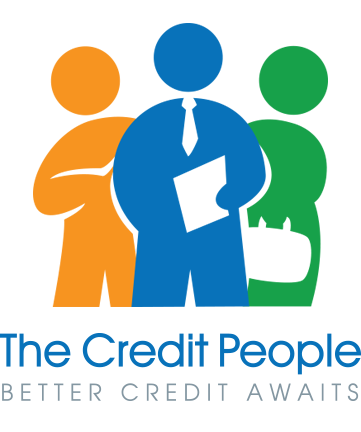
“Get Started – The Credit People” from clients.thecreditpeople.com and used with no modifications.
The Credit People differentiates itself with a unique pricing structure and an exceptional money-back guarantee. Clients can choose between a monthly subscription ($99 per month with a low $19 setup fee) or a flat-rate option where you pay a one-time fee of $419 for six months of service. This flat-rate option provides significant savings for customers who anticipate needing credit repair services for the full six-month period, which is typical for moderate to severe credit issues.
What truly sets The Credit People apart is their unmatched guarantee: clients can request a full refund at any time if they’re unhappy with the service for any reason. This no-questions-asked policy demonstrates their confidence in their ability to deliver results and minimizes the financial risk for consumers trying credit repair for the first time. Their service includes unlimited disputes, all three credit bureau reports, score updates, and credit monitoring.
Their approach focuses on both the removal of negative items and providing guidance for building positive credit history. Clients receive access to a simple online dashboard that displays real-time updates on dispute statuses and credit score changes. While they may lack some of the advanced features of premium competitors, their straightforward service and exceptional guarantee make them an excellent choice for budget-conscious consumers.
5. CreditRepair.com – Best Technology Platform
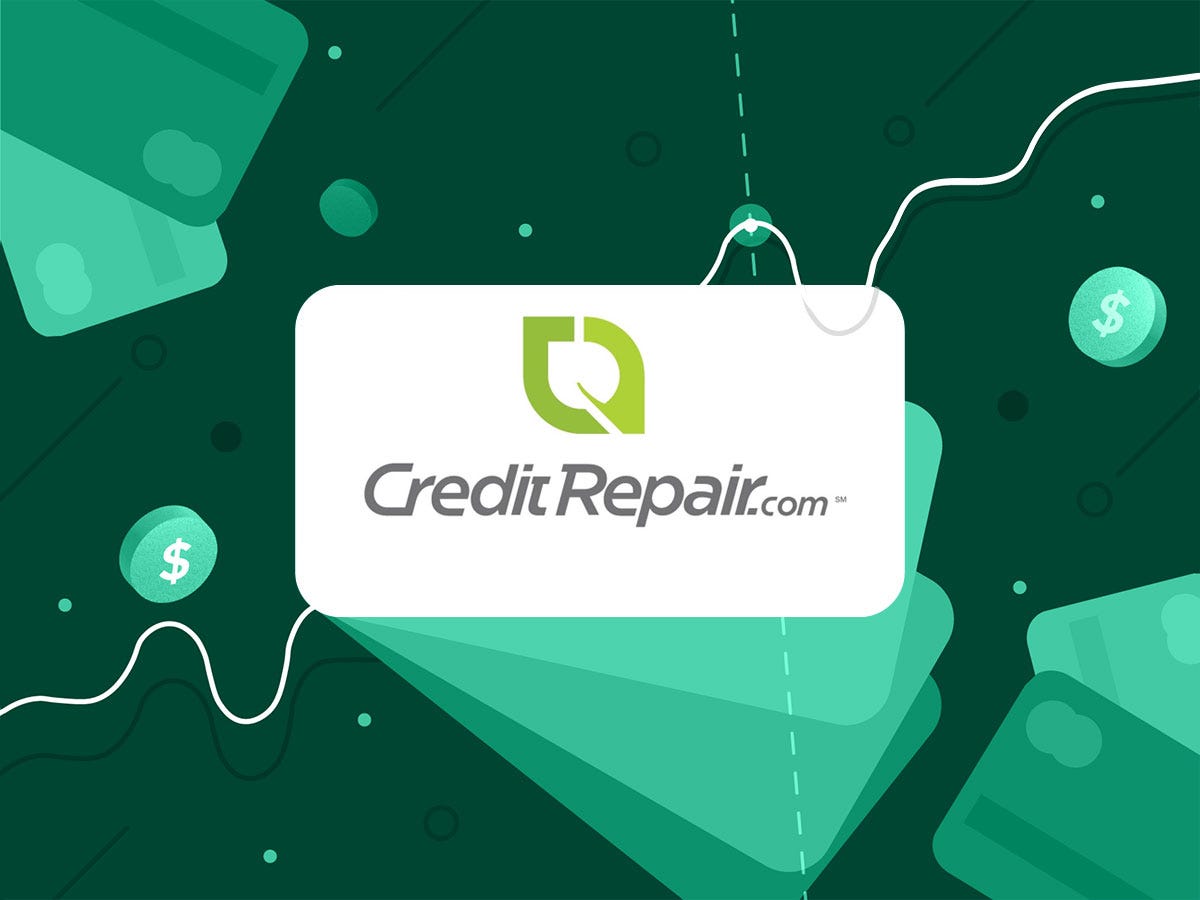
“CreditRepair.com Review 2025” from www.businessinsider.com and used with no modifications.
CreditRepair.com excels in the digital experience of credit repair, offering the most advanced technology platform in the industry. Their mobile app and client portal provide comprehensive 24/7 access to your case status, credit reports, score updates, and dispute progress. For tech-savvy clients who value real-time information and digital communication, their platform offers unmatched convenience and transparency.
Their three service tiers (Direct, Standard, and Advanced) provide progressively more aggressive dispute cycles and additional features. All plans include credit monitoring, score tracking, and identity theft insurance, while higher tiers add features like cease and desist letters to collectors and personal finance tools. CreditRepair.com also provides excellent educational resources, including interactive credit score simulators that show how different actions might impact your scores.
The company processes an average of 1.8 million disputes and challenges annually and claims an average of 40+ negative item removals per customer. Their bureau-direct electronic submission system often results in faster responses than traditional mail disputes. While their monthly fees are on the higher end of the spectrum, the technological conveniences and regular credit updates provide significant value for clients who prioritize the digital experience.
6. Ovation Credit – Best Customer Service

“Ovation Credit Services, Inc. Reviews …” from www.trustpilot.com and used with no modifications.
Owned by LendingTree since 2018, Ovation Credit Services combines the resources of a financial industry leader with personalized attention typically found only at boutique agencies. They excel in customer service, assigning each client a dedicated case advisor who serves as a single point of contact throughout the credit repair process. This consistent relationship allows advisors to develop a deep understanding of each client’s unique situation and provide truly personalized guidance.
Their two service plans (Essentials and Essentials Plus) are competitively priced at $79 and $109 per month respectively, with an $89 first-work fee for both tiers. The higher tier adds features like unlimited dispute letters, TransUnion credit monitoring, and letter templates for goodwill interventions with creditors. Ovation also offers several discount opportunities, including discounts for seniors, military personnel, and couples.
Ovation’s satisfaction rate exceeds 90% according to their internal metrics, with clients particularly praising the accessibility and knowledge of their case advisors. The company offers a unique “same-day service” option where they begin working on your case the same day you sign up, compared to the several-day waiting period common with competitors. For clients who value personal guidance and responsive communication throughout the credit repair process, Ovation offers an exceptional experience.
7. Credit Glory – Best for Fast Results

“Remote Inside Sales Representative (100 …” from remoteafrica.io and used with no modifications.
Credit Glory has built a reputation for achieving rapid results in the credit repair process, making them an ideal choice for consumers who need quick credit improvements for upcoming loan applications or major purchases. Their streamlined dispute process and aggressive approach often yield initial results within the first 30-45 days, faster than the industry average of 60-90 days for first removals.
Their service is priced at a flat $99 per month with a $99 first-work fee, positioning them in the mid-range for credit repair pricing. This single-tier approach includes unlimited disputes across all three bureaus, debt validation letters, goodwill interventions with creditors, and 24/7 online access to your case status. Credit Glory also provides a free consultation and credit report review before you commit to their services.
What distinguishes Credit Glory is their focus on efficiency and their track record with specific types of negative items. They excel at removing collections, late payments, and inquiries, though they’re transparent about the challenges of removing verified negative information. They support their claims with a satisfaction guarantee that allows clients to cancel without further charges if they’re not seeing adequate progress.
How to Choose the Right Provider for YOUR State
Credit repair regulations vary significantly by state, making your location an important factor in choosing the right service. Some states have enacted strict consumer protection laws that go beyond federal regulations, while others have specific licensing requirements for credit repair organizations. Understanding these state-specific considerations will help you select a legally compliant provider that can effectively serve clients in your area.
State Licensing Requirements and Verification
Several states require credit repair companies to obtain specific licenses or registrations to legally operate within their borders. States like Georgia, Illinois, Nevada, and Oregon have particularly rigorous requirements, including bonding, background checks, and regular audits. Before signing up with any credit repair service, verify that they are properly licensed to operate in your state by checking with your state’s attorney general office or department of consumer affairs. Legitimate companies will readily provide their licensing information upon request and typically display their credentials prominently on their websites.
Local Office Availability vs. Remote Service
While most credit repair services operate nationally via phone and internet, some maintain physical office locations in major metropolitan areas. Local offices can provide advantages like face-to-face consultations and familiarity with regional credit issues and lenders. This personalized approach can be particularly valuable for clients with complex credit situations or those who prefer in-person communication over digital interactions.
Remote services, however, often offer greater convenience, extended customer service hours, and sophisticated digital tools for monitoring your progress. These nationwide providers typically have larger case volumes, which can translate to more refined dispute strategies and greater leverage with the credit bureaus. When evaluating remote services, prioritize those with strong digital platforms that provide transparent case updates and responsive customer support.
- Local credit repair services: Better understanding of regional creditors and collection agencies, personalized service, face-to-face consultations
- Regional chain providers: Balance of personalized attention and established procedures, familiarity with state-specific regulations
- National credit repair companies: More resources, sophisticated technology platforms, potentially lower costs through economies of scale
- Law firms specializing in credit repair: Advanced legal expertise, particularly valuable for complex cases involving legal judgments
The best choice often depends on your specific situation. If you’re dealing with local collection agencies or regional creditors, a local service might have established relationships that expedite resolutions. If you need comprehensive digital tools and 24/7 access to your case, a national provider with a robust technology platform might be more suitable.
Another consideration is response time. Local services sometimes offer faster initial consultations and more immediate access to your case manager when questions arise. However, national services typically have more structured dispute processes that can lead to more systematic and thorough credit report reviews.
State-Specific Consumer Protection Laws
Many states have enacted additional consumer protection regulations that go beyond federal laws like the Credit Repair Organizations Act (CROA). States such as California, Florida, Texas, and New York have particularly robust protections for consumers using credit repair services. These may include extended cancellation periods, additional disclosure requirements, or restrictions on permissible fees. Understanding your state’s specific protections empowers you to recognize if a company is operating outside legal boundaries.
For more on how regulations can impact industries, check out AI regulation and ethics.
In states with stricter regulations, reputable companies must adapt their contracts, fee structures, and operating procedures to ensure compliance. This sometimes means that services or pricing available in one state may not be available in another. When researching providers, ask specifically how they comply with your state’s regulations and what guarantees or protections they offer beyond the federal requirements. Legitimate companies will be transparent about these differences rather than applying a one-size-fits-all approach across states.
⚠️ Important: You can verify a company’s compliance history by checking complaints filed with your state’s attorney general, the Consumer Financial Protection Bureau (CFPB), or the Better Business Bureau. A pattern of complaints about state regulatory violations is a significant red flag.
Credit Repair Services vs. Alternatives — Which Is Right for You?
Credit repair services are just one option for improving your credit profile. Depending on your specific situation, budget, and timeline, alternative approaches might be more appropriate. Understanding the full range of options helps you make an informed decision about the best path forward for your credit recovery journey.
DIY Credit Repair: Pros, Cons, and Required Steps
Many credit issues can be addressed through a DIY approach, saving you the monthly fees associated with professional services. The Fair Credit Reporting Act (FCRA) gives you the legal right to dispute inaccurate information directly with the credit bureaus at no cost. With diligence and organization, you can potentially achieve similar results to professional services, especially for straightforward cases with clear errors.
However, DIY credit repair requires significant time investment, detailed knowledge of credit laws, and persistent follow-up. You’ll need to identify specific errors, prepare formal dispute letters citing relevant regulations, gather supporting documentation, and track responses from multiple bureaus. For complex cases or numerous errors, this process can become overwhelming and time-consuming, potentially spanning many months without the expertise to expedite resolutions.
The DIY approach works best for consumers with just a few clear errors, good organizational skills, and the time to manage the process. If you have numerous negative items, complex issues like identity theft aftermath, or limited time to dedicate to the process, professional services often provide better outcomes more efficiently.
Credit Counseling Services: When They’re the Better Option
Credit counseling focuses on education and debt management rather than disputing existing credit report entries. Nonprofit credit counseling agencies provide budget guidance, financial education, and can establish debt management plans (DMPs) that consolidate payments and potentially secure lower interest rates. Unlike credit repair, counseling services address the underlying financial behaviors that lead to credit problems.
Credit counseling is particularly valuable when your credit issues stem from legitimate debt struggles rather than reporting errors. Through a DMP, counselors work directly with creditors to create manageable payment plans, sometimes reducing interest rates or waiving fees. While this approach doesn’t remove negative items as quickly as successful disputes, it establishes positive payment history going forward and provides the financial education needed for long-term credit health.
| Option | Best For | Pros | Cons | Time/Cost |
|---|---|---|---|---|
| Credit Repair Services | Inaccurate negative items | Expertise, time-saving, systematic approach | Monthly fees, no guarantee of removal | 3-6 months / $79-129 monthly |
| DIY Credit Repair | Few clear errors, limited budget | No cost, complete control of process | Time-consuming, requires knowledge | 6-12 months / Free (time investment) |
| Credit Counseling | Legitimate debt struggles | Financial education, debt management plans | Doesn’t remove existing negatives | 3-5 years / Free to $50 monthly |
| Debt Settlement | Significant unpaid debt | Reduces total debt owed | Damages credit short-term, tax implications | 2-4 years / 15-25% of settled debt |
Debt Settlement vs. Credit Repair: Key Differences
Debt settlement focuses on negotiating with creditors to accept less than the full amount owed to satisfy outstanding debts. This strategy is fundamentally different from credit repair, which addresses inaccuracies in how debts are reported rather than the debts themselves. Settlement can be an appropriate option for consumers with significant delinquent debts they cannot realistically repay in full.
However, debt settlement typically causes short-term damage to your credit score as accounts go unpaid during negotiations. Settled debts generally appear on your credit report as “settled for less than the full amount,” which lenders view less favorably than “paid in full” status. Additionally, forgiven debt over $600 may be taxable as income. Despite these drawbacks, settlement can provide a fresh start for consumers overwhelmed by unsecured debt, particularly when bankruptcy is the only alternative.
Credit Monitoring Services: Complementary, Not a Replacement
Credit monitoring services alert you to changes in your credit reports and scores, helping you catch potential errors or fraud quickly. Many services provide regular access to your credit reports, score updates, and identity theft protection features. While these services help you stay informed about your credit status, they don’t actively work to remove negative items or improve your score.
Monitoring works best as a complement to other credit improvement strategies, providing the visibility needed to track progress and identify new issues promptly. Many credit repair companies include monitoring as part of their packages, but standalone monitoring services are also available from the credit bureaus themselves and from independent providers. For ongoing credit maintenance after completing repair efforts, monitoring services provide valuable protection against future problems.
5 Red Flags to Avoid (Scam Warning!)
❌ Demands for payment before any work is performed
❌ Pressure to pay via non-traceable methods like cryptocurrency or gift cards
❌ Lack of a clear, written explanation of when and how payments will be processed
❌ No mention of your right to cancel within 3 business days as guaranteed by CROA
❌ Excessive setup fees that far exceed the industry standard of $79-195
The credit repair industry unfortunately attracts its share of scammers looking to exploit vulnerable consumers. Recognizing the warning signs of fraudulent operations can save you time, money, and potential legal complications. Legitimate credit repair companies operate within specific legal guidelines and never make promises they can’t keep.
Upfront Payment Demands and Illegal Fee Structures
Under the Credit Repair Organizations Act (CROA), companies cannot legally collect payment before performing services. If a company demands payment upfront before any work is done on your behalf, they’re violating federal law. Legitimate companies typically charge a “first work fee” only after they’ve completed their initial review and begun the dispute process, usually 5-7 days after enrollment.
Be wary of companies requiring large advance payments, especially those asking for the full program cost upfront. Trustworthy credit repair services operate on a monthly subscription model, allowing you to cancel if you’re dissatisfied with the results. Some may offer discounted package rates for pre-paying several months, but should still complete some work before processing your first payment.
Guarantees of Specific Score Improvements
No legitimate credit repair company can guarantee specific point increases to your credit score or the removal of accurate negative information. Credit bureaus are not obligated to remove information that is verifiable and correctly reported, regardless of how persistent the disputes. Companies promising to increase your score by specific amounts (e.g., “100 points guaranteed”) or claiming they can remove all negative items regardless of accuracy are misrepresenting their capabilities.
Reputable companies set realistic expectations, explaining that only inaccurate, unverifiable, or outdated information can be legitimately disputed. They should clarify that results vary based on your specific credit situation, the responsiveness of creditors, and the documentation available to support disputes. Be particularly skeptical of guarantees regarding the removal of accurate bankruptcies, foreclosures, or court judgments, as these are especially difficult to remove if correctly reported.
Pressure to Create a “New Credit Identity”
One of the most serious credit repair scams involves companies suggesting you create a “new credit identity” or use an Employee Identification Number (EIN) instead of your Social Security Number to establish a new credit profile. These practices constitute fraud and can result in serious legal consequences, including potential prison time. Any company recommending such approaches is explicitly encouraging you to break the law.
For more information on the ethical implications of such practices, you can explore AI regulation and ethics as a related topic.
Other illegal tactics include creating or purchasing “tradelines” (being added as an authorized user to a stranger’s account for a fee) or using CPN (Credit Privacy Numbers) as alternatives to your Social Security Number. While building new positive credit history is a legitimate strategy, it must be done using your actual identity through legal means like secured credit cards, credit builder loans, or becoming an authorized user on a family member’s account.
For those interested in online business opportunities, exploring the best e-commerce platforms might also be beneficial.
Limited or Non-Existent Customer Support
Effective credit repair requires ongoing communication between you and your service provider. Scam operations often make themselves difficult to reach after collecting payment, providing limited contact options or unresponsive customer service. Legitimate companies offer multiple communication channels, regular status updates, and dedicated representatives familiar with your case.
Before signing up, test the company’s responsiveness by calling their customer service line during different times of day and asking detailed questions about their process. Reputable companies provide clear answers without resorting to high-pressure sales tactics or vague promises. They should also offer a client portal or regular reports documenting exactly what actions have been taken on your behalf and the results of those efforts.
For more insights, explore how SEO automation tools can enhance transparency and efficiency in service delivery.
No Written Contract or Unclear Terms
The CROA requires credit repair companies to provide a written contract detailing the services they’ll perform, your payment obligations, and your consumer rights. This contract must include specific disclosures about your right to cancel within three business days and the company’s obligation to perform services before collecting payment. Avoiding written agreements or providing contracts with vague language about services is a common tactic of fraudulent operators.
Before signing, ensure the contract clearly specifies exactly which services will be performed, the complete cost structure, estimated timeframe, cancellation policy, and guarantees (if any). The contract should also detail what happens if the company fails to achieve results – legitimate providers typically offer some form of satisfaction guarantee or partial refund policy for clients who don’t see improvements after a reasonable period.
What to Expect: Realistic Timeline and Results
Setting realistic expectations about the credit repair process helps you evaluate whether a service is delivering appropriate results or if you might be better served by alternative approaches. While timelines vary based on individual circumstances, understanding the typical progression can help you gauge whether your repair efforts are on track.
30-Day Initial Results: What’s Possible
The first 30 days of credit repair typically involve completing your initial consultation, analyzing your credit reports, developing a dispute strategy, and submitting the first round of disputes to the credit bureaus. Under the Fair Credit Reporting Act, bureaus have 30 days to investigate disputes, so you likely won’t see actual changes to your reports during this period. However, you should receive clear communication about which items are being disputed and the specific approach being used for each negative entry.
3-Month Progress Milestones
By the three-month mark, most clients begin seeing measurable results from professional credit repair efforts. This typically includes the removal of some inaccurate negative items, with corresponding improvements to credit scores. The specific impact varies widely depending on your starting credit profile, the number and severity of errors being disputed, and the responsiveness of the credit bureaus to initial disputes.
During this period, your credit repair company should be providing detailed updates about which items have been successfully removed, which disputes were rejected, and the strategy for follow-up actions. For items where initial disputes were unsuccessful, more specialized approaches may be implemented, such as debt validation requests to creditors, method of verification demands to bureaus, or goodwill intervention with original creditors.
- First-round dispute results from all three bureaus should be complete
- Second-round disputes for initially unsuccessful items should be underway
- Initial credit score improvements, typically 15-40 points for clients with verified inaccuracies
- Clear reporting on which items have been removed and which remain
- Strategic adjustments based on bureau responses to initial disputes
This middle phase is critical for evaluating the effectiveness of your chosen credit repair approach. If you’re seeing no movement or improvement after three months of professional service, it may indicate either a lack of disputable items on your reports or ineffective dispute strategies from your provider. A quality service will provide honest assessment at this stage about whether continued efforts are likely to yield additional improvements.
6-Month Complete Program Outcomes
For most clients, the credit repair process reaches completion around the six-month mark, though complex cases may extend longer. By this point, you should have seen maximum results from the dispute process, with all legitimately disputable items having received multiple challenge attempts using various approaches. While not all negative items can be removed (particularly those that are accurate and verifiable), a successful repair process should have eliminated inaccuracies and provided you with a clearer credit profile that accurately reflects your credit history.
DIY Credit Repair: Essential Steps Before Hiring a Service
Before investing in professional credit repair services, consider taking several DIY steps that could potentially resolve simpler credit issues without cost. Many consumers successfully improve their credit through self-directed efforts, particularly when dealing with a limited number of clear errors. These preliminary steps can either resolve your credit issues entirely or provide valuable information to make professional services more effective if you later decide to hire assistance.
For those looking to expand their online business, exploring beginner e-commerce platforms could be a valuable next step.
Getting Your Free Credit Reports
The foundation of any credit repair effort is obtaining and reviewing your current credit reports from all three major bureaus: Equifax, Experian, and TransUnion. Federal law entitles you to one free report from each bureau annually through AnnualCreditReport.com, the only federally authorized source for free credit reports. Due to the COVID-19 pandemic, the bureaus are currently offering free weekly online reports through this site, providing unprecedented access to your credit information.
When reviewing your reports, you’ll notice that each bureau may contain slightly different information, as not all creditors report to all three agencies. Print or save digital copies of your reports, as they provide the baseline for identifying errors and measuring progress as items are corrected or removed. Pay particular attention to account statuses, payment histories, balances, credit limits, and personal information like addresses and employers.
For those interested in optimizing their financial strategies, exploring the best SEO automation tools can also be beneficial.
Identifying Errors and Inaccuracies
Carefully examine each entry on your credit reports, looking for potential errors that could be harming your scores. Common credit report errors include accounts belonging to someone else (often due to similar names or Social Security Numbers), incorrect payment statuses, outdated negative information that should have aged off, duplicate accounts, and incorrect balance or credit limit information. Mark each potential error and gather any documentation you have that proves the information is incorrect.
Pay special attention to accounts reporting as “late” or “collections” when you believe payments were made on time, accounts you don’t recognize at all, and negative items older than the legal reporting period (generally 7 years for most negative items, 10 years for bankruptcies). Also look for hard inquiries you didn’t authorize, as these could indicate identity theft or unauthorized credit applications in your name.
Writing Effective Dispute Letters
Once you’ve identified potential errors, prepare formal dispute letters to the credit bureaus challenging each inaccuracy. Your letter should clearly identify the item being disputed, explain why you believe it’s inaccurate, and request that it be corrected or removed. Include copies (never originals) of any supporting documentation, such as payment receipts, correspondence from creditors, or identity verification. The Consumer Financial Protection Bureau (CFPB) offers sample dispute letter templates that you can customize for your specific situation.
Following Up With Credit Bureaus
Submit your disputes via certified mail with return receipt requested to create a paper trail of your communication. Under the Fair Credit Reporting Act, credit bureaus must investigate disputes within 30 days (45 days in some circumstances) and notify you of the results. If the bureau verifies the information as accurate, you have the right to request the method of verification and to add a brief consumer statement to your report explaining your perspective on the disputed item.
If your initial disputes are unsuccessful, consider escalating to the next level by contacting the creditor directly with a similar dispute, filing a complaint with the Consumer Financial Protection Bureau, or seeking assistance from a professional credit repair service. Persistence often pays off in the dispute process, as credit bureaus and creditors sometimes provide more thorough investigations when consumers demonstrate their commitment to resolving discrepancies.
Frequently Asked Questions (FAQs)
As you consider your credit repair options, you likely have questions about the process, costs, and potential outcomes. These are the most common questions consumers ask when evaluating credit repair services.
How much do credit repair services typically cost?
Credit repair services generally charge between $79 and $129 per month, with most requiring an initial setup fee ranging from $79 to $195. This fee structure typically continues for 3-6 months, making the total investment between $300 and $900 for a complete credit repair program. Higher-tier service packages that include more aggressive dispute cycles, credit monitoring, identity theft protection, or legal interventions may cost up to $150 monthly.
Some companies offer discounted rates for couples or household members repairing their credit simultaneously, while others provide flat-rate packages covering a specific period (usually six months) for a single upfront payment. When evaluating costs, consider both the monthly fees and any additional charges for supplementary services like credit monitoring or identity protection that you might otherwise need to purchase separately.
How long does credit repair usually take?
The credit repair timeline typically spans 3-6 months for most consumers, though complex cases may require longer. This duration reflects the time needed for multiple rounds of disputes with the credit bureaus, each requiring 30-45 days for investigation and response. The specific timeframe for your situation depends on several factors: the number of items being disputed, the complexity of the inaccuracies, the responsiveness of your creditors, and whether initial disputes require follow-up challenges with additional evidence or approaches.
Can credit repair companies remove legitimate negative items?
Legitimate credit repair companies cannot legally remove accurate negative information from your credit reports. Under the Fair Credit Reporting Act, credit bureaus are permitted to report accurate negative information for specific time periods: 7 years for most negative items (late payments, collections, charge-offs) and 10 years for bankruptcies. If a company promises to remove accurate, verifiable negative items, they are either misrepresenting their capabilities or suggesting illegal tactics that could expose you to legal consequences.
Are credit repair services worth the money?
Credit repair services are most valuable for consumers with multiple inaccuracies on their credit reports, complex credit situations, or limited time to manage the dispute process themselves. The potential return on investment can be substantial – a 100-point credit score improvement could save tens of thousands of dollars on a mortgage through better interest rates, or make the difference between approval and denial for important loans or rental applications. However, if your credit reports contain few errors or only legitimate negative items, professional services may offer limited benefits compared to free DIY approaches or credit counseling.
What’s the difference between credit repair and credit counseling?
Credit repair focuses specifically on removing inaccurate negative information from your credit reports through disputes with the credit bureaus and creditors. This process addresses existing errors rather than changing financial behaviors. Credit counseling, by contrast, provides education on managing finances, creating budgets, and developing healthy credit habits. Many credit counseling agencies also offer Debt Management Plans (DMPs) that can lower interest rates and consolidate payments for existing debts, but they don’t typically dispute existing credit report entries.
Take Control of Your Credit Future Today
Your credit score affects nearly every aspect of your financial life, from mortgage rates to insurance premiums, rental applications to employment opportunities. Taking proactive steps to address credit report inaccuracies and build positive credit history can open doors to better financial options and significant long-term savings. Whether you choose professional credit repair services, DIY dispute methods, or credit counseling, the important thing is to begin the process of reclaiming your credit health.
For those with multiple credit report errors or complex situations, reputable credit repair services can provide the expertise and systematic approach needed to navigate the dispute process efficiently. Remember to choose providers that comply with all applicable regulations, set realistic expectations, and demonstrate transparency in their methods and pricing. The best credit repair company for your situation will depend on your specific credit issues, budget, timeline, and whether you prefer local service or nationwide resources.
Ready to transform your credit profile? Consider scheduling free consultations with several of our top-recommended providers to compare approaches and find the best fit for your unique credit situation. Market Business Watch has partnered with the industry’s most trusted credit repair services to help you access the expertise you need to rebuild your credit and create new financial opportunities.

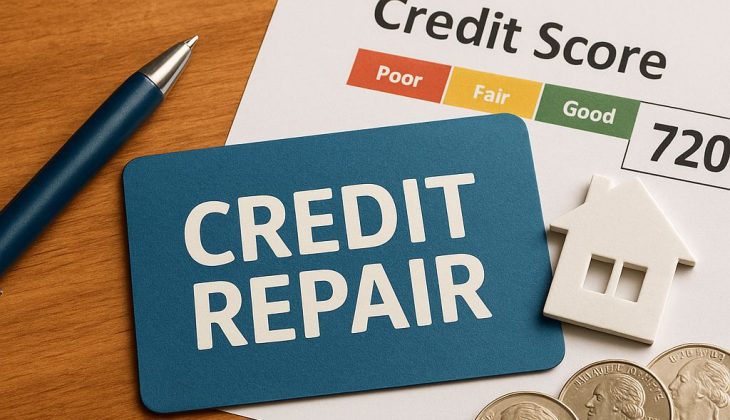
Join the Conversation